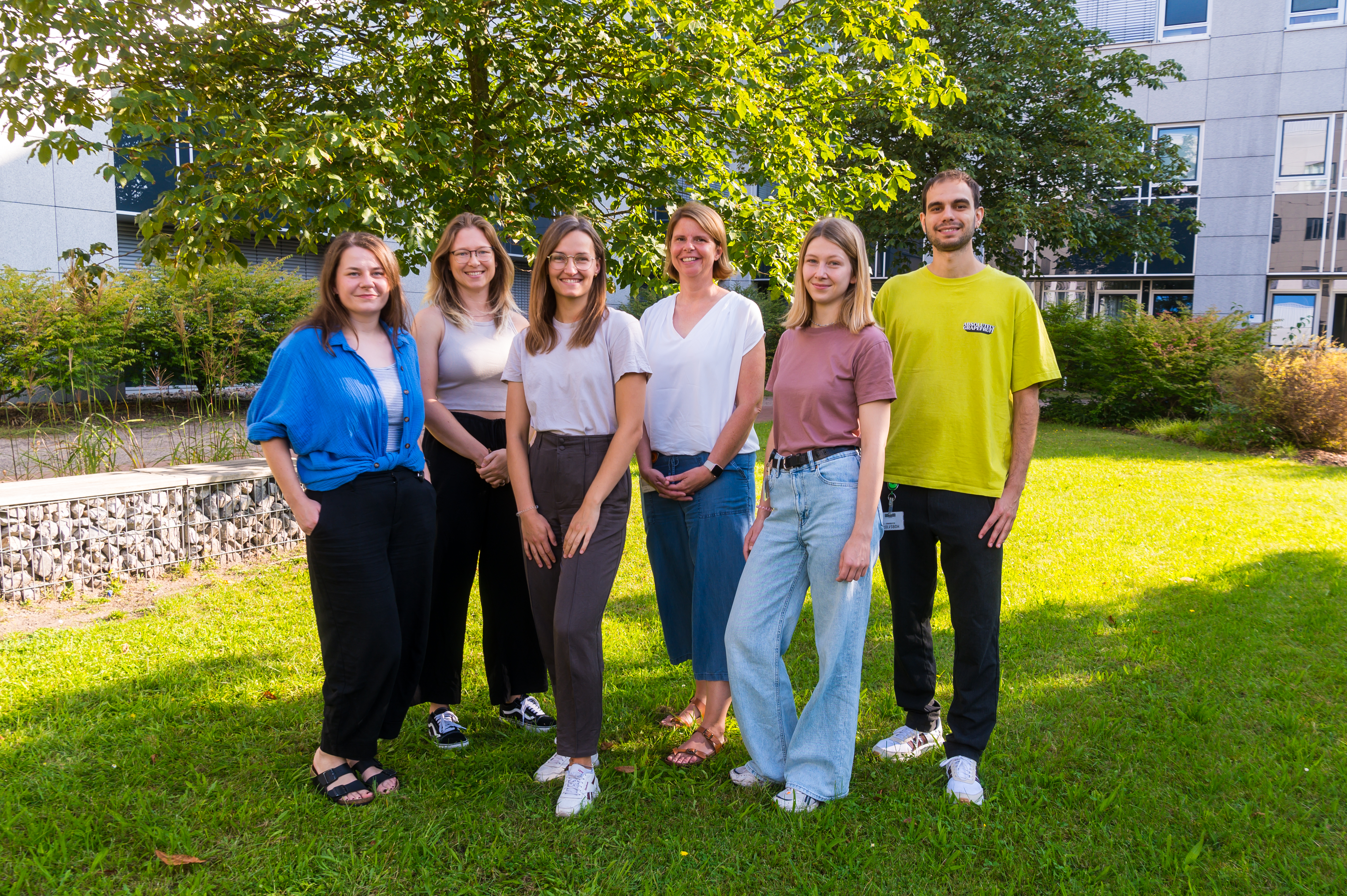Research Group Olmer (DZL Junior Group)
DZL Junior Group
Treatment of pulmonary diseases using pluripotent stem cells: Differentiation of embryonic and induced pluripotent stem cells into airway and alveolar epithelial cells
Diseases of the respiratory system, e.g., chronic obstructive pulmonary disease (COPD), are one of the major causes of death worldwide. Other severe respiratory diseases, though classified as “rare diseases”, are also life threatening, e.g. Cystic Fibrosis (CF) and surfactant deficiencies (SD).
CF is a genetic disease, resulting in a dysfunction of the „Cystic Fibrosis Transmembrane Conductance Regulator (CFTR)“ which serves as a chloride channel. This dysfunction alters the composition of secretion of all exocrine glands. The pulmonary manifestation of CF is characterized by viscous mucous obstructing the airways, repeatedly occurring lung infections, and increasing lung insufficiency.
Hereditary SD lead to severe respiratory insufficiency due to the lack of surfactant (surface active agent), which is essential in the alveoli for normal lung function. To date, mutations in three different genes are known to cause SD (ATP-binding cassette protein member A3, surfactant proteins B and C). Both CF and SD are lethal in most cases, with lung transplantation representing the only life-prolonging procedure in the end-stage phase of the diseases.
Considering the huge deficit in donor organs, this clearly highlights the urgent need of alternative treatments for diseases of the respiratory system. Cell replacement therapies could be used to regenerate normal lung function in both genetic and acquired pulmonary diseases. Pluripotent stem cells represent a suitable cell source due to their high proliferation and differentiation potential. In particular, so-called induced pluripotent stem cells (iPS cells), which could be used as an autologous alternative to embryonic stem cells (ES cells), are promising candidates for such cell replacement therapies.
Our junior research group, embedded in the DZL (German Centre for Lung Research), therefore focuses on the differentiation of ES and iPS cells into epithelial cells of the airways and alveoli, aiming at the establishment of innovative treatments for pulmonary diseases. Additionally funded by the BMBF network project “Cellular Approaches for Rare Pulmonary Diseases (CARPuD)”, we aim to generate Clara cells and ciliated cells of the pulmonary epithelium for the treatment of CF, and alveolar type II (ATII) cells for the therapy of SD. In parallel, together with a project of the research group from Prof. Martin and funded by the “Mukoviszidose e.V.”, technologies are currently being developed to correct the underlying gene defect in patient-derived iPSCs prior to differentiation into the desired respiratory cell type (see also RG Martin).
In our group, we have already established efficient protocols for the differentiation of murine ES and iPS cells into Clara and ATII cells by applying specific (growth) factors. The biggest challenge, however, will be the functional engraftment of these cells to replace the affected endogenous epithelial cells. For this purpose, the therapeutic potential of ES/iPS cell-derived lung epithelial cells is evaluated in appropriate animal models in cooperation with other DZL research groups.
Of huge impact for both the optimization of differentiation protocols as well as for drug-screening are human iPS reporter cell lines which are generated using TALEN-based homologues recombination (RG Martin).
Following the above priorities, the current state of research forms the basis for innovative, stem cell-based therapies to treat pulmonary diseases.
